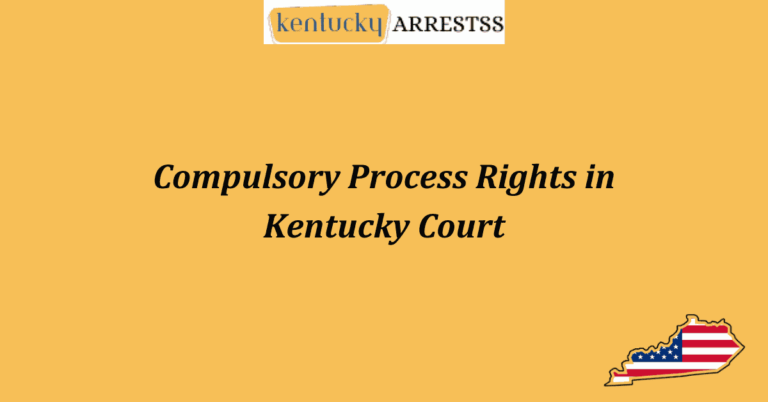Understanding Bail Rights in Kentucky
In Kentucky, bail rights play a crucial role in the legal system. Individuals accused of crimes have the right to seek bail, which allows them to be released from custody while awaiting trial. Understanding bail rights in Kentucky is essential for both the accused and their families to navigate the legal process effectively. It is important to know the procedures and regulations surrounding bail in Kentucky to ensure a fair and just outcome.
Knowing your bail rights in Kentucky can make a significant difference in the outcome of your legal proceedings. By being informed about the bail process, individuals can make informed decisions about their case and seek the appropriate legal assistance. Whether you are facing criminal charges or supporting a loved one through the legal system, understanding bail rights in Kentucky is a fundamental aspect of ensuring justice and fairness in the legal process.
What is Bail?
Bail refers to the amount of money or property that defendants must provide to the court as a guarantee that they will appear for their scheduled court hearings. It serves as a temporary release from jail pending trial or other court appearances.
Bail Laws in Kentucky
In Kentucky, bail laws are structured to balance the rights of the accused with public safety considerations. The state adheres to constitutional principles that ensure defendants are not held arbitrarily without the opportunity for release before trial.
Types of Bail
The types of bail available in Kentucky include cash bail, where defendants pay the full amount in cash; surety bail bonds, involving a bail agent; property bonds, using real estate as collateral; and release on recognizance (ROR), where defendants are released without posting bail, based on their promise to appear.
Factors Affecting Bail
Several factors influence bail decisions in Kentucky, such as the severity of the offense, the defendant’s criminal history, and assessments of flight risk. Judges carefully weigh these factors when determining bail amounts or conditions.
Procedures for Setting Bail
The process of setting bail in Kentucky typically begins with an initial bail hearing shortly after arrest. Judges assess the circumstances of the case and the defendant’s background to determine the appropriate bail amount or conditions. Kentucky also utilizes bail schedules that provide guidelines for bail amounts based on the nature of the offense.
Challenges in Obtaining Bail
Obtaining bail in Kentucky can be challenging, particularly for individuals with limited financial resources or facing serious charges. The complexities of bail procedures and concerns about public safety can further complicate the process.
Rights of Defendants
Defendants in Kentucky have the right to reasonable bail under the law. This right ensures that bail amounts are not set excessively high and considers the individual circumstances of each case. Due process protections guarantee defendants the opportunity to challenge bail decisions through the legal system.
Impact of Bail Reform
Recent years have seen discussions and initiatives for bail reform in Kentucky and across the United States. Advocates argue for changes that promote fairer treatment of defendants, reduce pretrial detention rates, and address inequalities in the bail system.
Common Misconceptions about Bail
It’s important to dispel common misconceptions about bail, such as the belief that bail is a form of punishment. In reality, bail is meant to ensure defendants’ appearance in court and does not determine guilt or innocence.
Alternatives to Bail
Alternatives to traditional bail include pretrial services, which provide support and supervision to defendants awaiting trial, and electronic monitoring programs that track defendants’ movements. These alternatives aim to ensure court appearances while allowing defendants to maintain employment and family ties.
Case Studies and Examples
Examining notable bail cases in Kentucky provides insight into how bail decisions are made and their impact on individuals awaiting trial. Successful bail applications highlight effective strategies and legal considerations.
Legal Resources and Support
Accessing legal resources and support is essential for defendants navigating the bail process in Kentucky. Legal aid organizations and experienced bail agents or attorneys can provide guidance and representation to ensure fair treatment under the law.
Frequently Asked Questions
Our FAQ section aims to provide detailed information on understanding bail rights in Kentucky. Below are common queries that individuals may have regarding this topic.
What are bail rights in Kentucky?
Bail rights in Kentucky refer to the legal entitlement of an individual to be released from custody pending trial. The purpose of bail is to ensure that the accused appears in court for their scheduled hearings.
How is bail determined in Kentucky?
In Kentucky, bail is typically set based on the severity of the crime, the defendant’s criminal history, and the likelihood of the defendant appearing in court. Judges consider various factors before determining the bail amount.
Can bail be denied in Kentucky?
Yes, bail can be denied in Kentucky if the judge believes that the defendant poses a flight risk or is a danger to the community. In such cases, the defendant may be held in custody until their trial.
What happens if bail is too high to afford?
If bail is set at an amount that the defendant cannot afford, they may seek the services of a bail bondsman who can post bail on their behalf for a fee. Alternatively, the defendant may request a bail reduction hearing.
Are there alternatives to traditional bail in Kentucky?
Yes, Kentucky allows for alternatives to traditional bail, such as release on recognizance (ROR) or supervised release. These options may be available to low-risk defendants who are unlikely to flee or pose a threat.
Can bail conditions be modified in Kentucky?
Yes, bail conditions can be modified in Kentucky if circumstances change or if the defendant’s attorney can provide a valid reason for the modification. It is essential to consult with legal counsel to navigate the process effectively.






